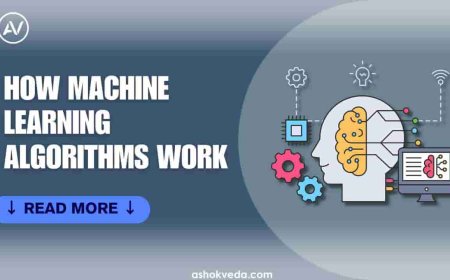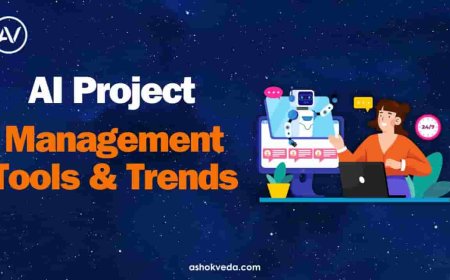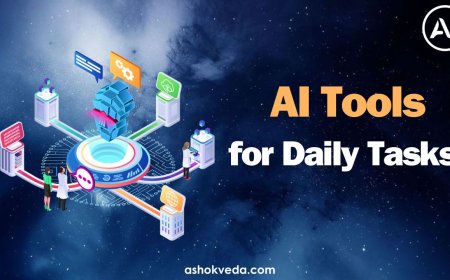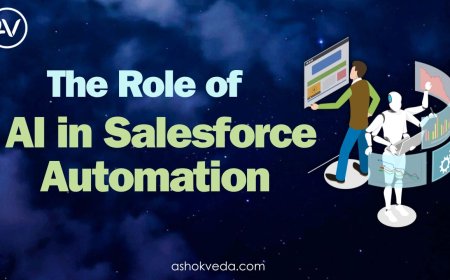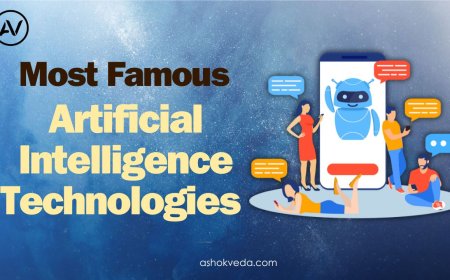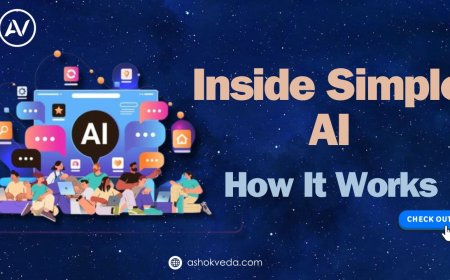Welcome to Ashok Veda's career advice page, where we explore five different career paths: Python, AI, data science, machine learning, and cybersecurity. Join us as we look into the details of each field, including opportunities, challenges, and their potential in today's job market. Whether you're experienced and considering a change or new to these industries, this platform aims to offer practical insights and guidance for navigating your career path. Let's start exploring the routes to success in technology and innovation.
1. Careers in Python
A career in Python offers diverse opportunities for individuals interested in software development, data analysis, web development, automation, and education. Python, known for its simplicity and versatility, is widely used across industries for its ability to create robust and scalable applications. As a software developer, you'll use Python to build software solutions tailored to meet the needs of various businesses and organizations. Whether it's developing user-friendly applications or complex backend systems, Python's flexibility allows for efficient and effective coding.
Data analysts: Data analysts leverage Python's extensive libraries for data manipulation and analysis to extract valuable insights from large and complex datasets. By utilizing tools like pandas and NumPy, data analysts can uncover patterns, trends, and correlations that drive informed decision-making within organizations.
Web developers: Web developers utilize Python frameworks like Django and Flask to create dynamic and interactive web applications. These frameworks provide a streamlined development process, allowing developers to focus on building features and functionality rather than reinventing the wheel.
Automation engineers: Automation engineers play a crucial role in streamlining workflows and increasing efficiency by developing scripts and tools to automate repetitive tasks. Python's simplicity and readability make it an ideal choice for creating automation solutions across various industries.
Python Trainer/Educator: Python trainers and educators share their expertise by teaching Python programming to aspiring developers and professionals. Through workshops, courses, and educational materials, Python educators empower others to harness the power of Python for their own projects and career advancement. Whether it's in-person instruction or online tutorials, Python educators play a vital role in expanding the reach and impact of Python within the tech community.
2. Careers in Artificial Intelligence (AI)
Embarking on a career in Artificial Intelligence (AI) opens doors to a realm of innovation and problem-solving. As an AI professional, you'll delve into the fascinating world of machines simulating human intelligence, offering solutions to complex challenges across various industries.
AI Research Scientist: Imagine being at the forefront of discovery, pushing the boundaries of what's possible in AI. As an AI research scientist, you'll conduct experiments, analyze data, and develop new algorithms to enhance AI technologies. Your work could lead to groundbreaking advancements in fields like healthcare, finance, and transportation.
Machine Learning Engineer: Picture yourself as a problem solver, using machine learning algorithms to tackle real-world issues. Machine learning engineers design and implement models that can learn from and make predictions based on data. From predicting customer preferences to optimizing supply chains, your solutions will drive efficiency and innovation.
AI Consultant: Envision yourself as a trusted advisor, guiding businesses on their AI journey. AI consultants assess organizational needs, identify opportunities for AI integration, and develop strategic implementation plans. Your expertise will empower companies to leverage AI effectively, enhancing productivity and competitiveness.
Natural Language Processing (NLP) Specialist: Consider the power of language, and how machines can understand and generate human speech. NLP specialists develop algorithms that enable computers to analyze, interpret, and generate human language data. From virtual assistants to sentiment analysis tools, your creations will revolutionize communication.
AI Ethicist: Reflect on the importance of ethical considerations in AI development. AI ethicists ensure that AI systems are designed and deployed responsibly, taking into account potential societal impacts and ethical implications. Your role is crucial in ensuring that AI technologies benefit humanity while minimizing harm.
Career in AI offers plenty of options,Whether you're conducting research, designing models, providing consultancy, specializing in NLP, or championing ethics, your contributions will shape the future of AI in a responsible and meaningful way.
3. Careers in Data Science
As a data scientist, your main role involves diving deep into complex datasets, deciphering patterns, and extracting valuable insights to guide decision-making processes. Your work helps businesses make informed choices, optimize operations, and stay ahead of the competition.
Data Scientist: Data scientists utilize their analytical skills to explore datasets, identify trends, and develop predictive models. By understanding data patterns, they provide actionable insights that drive business strategies and decisions.
Data Engineer: Data engineers are the architects behind data infrastructure. They design and build systems to collect, store, and process large volumes of data efficiently. Their work ensures that data is accessible and well-organized for analysis.
Business Intelligence Analyst: Business intelligence analysts focus on translating data into actionable insights for business stakeholders. They use data visualization tools to create easy-to-understand reports and dashboards, enabling stakeholders to make informed decisions.
Data Visualization Specialist: Data visualization specialists transform complex datasets into visually compelling graphics, charts, and dashboards. Their visualizations make it easier for non-technical users to understand trends and patterns within the data, facilitating decision-making processes.
Big Data Architect: Big data architects design and implement scalable solutions to handle massive volumes of data. They develop frameworks and architectures that enable efficient storage, processing, and analysis of big data, ensuring that organizations can derive value from their data assets.
Career in data science offers many opportunities to apply analytical skills and shape the future of businesses across industries. Whether you're analyzing data, designing infrastructure, or visualizing insights, your contributions play a vital role in driving innovation and success.
4. Careers in Machine Learning
Machine learning is a fascinating field that involves teaching computers to learn and make decisions without being explicitly programmed. It's like teaching a child to recognize patterns and make predictions based on past experiences.
Research Scientist: As a research scientist in machine learning, you'll delve deep into exploring new algorithms and techniques to tackle complex challenges. Your work will involve experimentation, analysis, and innovation to push the boundaries of what's possible in machine learning.
Deep Learning Engineer: Deep learning engineers focus on developing and refining deep neural networks, which are powerful algorithms inspired by the structure of the human brain. These networks are used for tasks like image recognition and natural language processing, enabling computers to understand and interpret complex data.
Applied Machine Learning Engineer: Applied machine learning engineers apply existing algorithms to specific domains such as finance, healthcare, or e-commerce. They use their expertise to tailor machine learning solutions to address the unique needs and challenges of these industries.
Autonomous Systems Engineer: Autonomous systems engineers design intelligent systems that can learn and adapt to their environment without human intervention. These systems are used in various applications, from self-driving cars to smart home devices, revolutionizing how we interact with technology.
Robotics Engineer: Robotics engineers combine machine learning with robotics to create autonomous robots capable of performing tasks independently. They work on developing algorithms that enable robots to perceive their surroundings, make decisions, and execute actions, paving the way for advancements in fields like manufacturing, healthcare, and exploration.
Whether you're exploring new algorithms, optimizing neural networks, or building autonomous systems, there's no shortage of exciting challenges to tackle in this field.
5. Careers in Cybersecurity
A career in cybersecurity involves protecting computer systems, networks, and data from unauthorized access, cyberattacks, and breaches. It's an essential field in today's digital age, as cyber threats continue to evolve and pose risks to individuals, businesses, and governments alike.
Cybersecurity Analysts: Cybersecurity Analysts play a crucial role in safeguarding organizations' digital assets. They monitor and analyze security systems, looking for signs of potential threats or breaches. By staying vigilant and proactive, they help prevent cyberattacks and mitigate their impact.
Penetration Testers: Penetration Testers, on the other hand, act as ethical hackers. They simulate cyber attacks to identify vulnerabilities in systems and networks. By uncovering weaknesses before malicious actors do, they enable organizations to strengthen their defenses and better protect against real threats.
Security Architects: Security Architects are responsible for designing and implementing secure systems and networks. They develop strategies and protocols to prevent unauthorized access and ensure that sensitive data remains protected. Their expertise is vital in building robust cybersecurity infrastructures.
Incident Responders: Incident Responders play a critical role in managing cybersecurity incidents when they occur. They coordinate responses, investigate breaches, and implement measures to contain and mitigate their impact. Their swift and effective actions help minimize damage and restore normal operations.
Cryptographers: Cryptographers focus on developing cryptographic algorithms and protocols to secure data and communications. By creating encrypted channels and secure authentication methods, they enable secure transmission and storage of sensitive information.
As you embark on your Python, AI, data science, machine learning, or cybersecurity journey, remember that the possibilities are endless. Whether you're a software developer, AI researcher, data scientist, machine learning engineer, or cybersecurity analyst, each career path offers unique opportunities for growth and impact. With dedication, continuous learning, and a passion for innovation, you can shape the future of technology and positively impact the world. Let's embark on this journey together and unlock the full potential of your career!

































